Retrieving Darwins
Revolutionary Idea
Darwin may not know it, but he belongs to the Social Revolution.
Karl Marx, cited in J. Spargo, Karl Marx: His Life and Work. (BW Huebsch, 1912), 200.
Retrieving Darwins
Revolutionary Idea
The Reluctant Radical
Samuel Grove
LEXINGTON BOOKS
Lanham Boulder New York London
Published by Lexington Books
An imprint of The Rowman & Littlefield Publishing Group, Inc.
4501 Forbes Boulevard, Suite 200, Lanham, Maryland 20706
www.rowman.com
6 Tinworth Street, London SE11 5AL, United Kingdom
Copyright 2021 The Rowman & Littlefield Publishing Group, Inc.
All rights reserved . No part of this book may be reproduced in any form or by any electronic or mechanical means, including information storage and retrieval systems, without written permission from the publisher, except by a reviewer who may quote passages in a review.
British Library Cataloguing in Publication Information Available
Library of Congress Cataloging-in-Publication Data
Names: Grove, Samuel, 1980- author.
Title: Retrieving Darwins revolutionary idea : the reluctant radical / Samuel Grove.
Description: Lanham : Lexington Books, [2021] | Includes bibliographical references and index. | Summary: Darwins discovery of evolution is as celebrated as Galileos laws of motion or Newtons discovery of gravity. But this was only half the story. Not content to prove that evolution had happened, Darwin sought to convey its full humbling implications. Thus he formulated the theory of natural selection. Contrary to popular belief, this theory ran exactly counter to scientific reason and was consequently rejected by the scientific community of the time. This wasnt the only reason Darwins critics recoiled. His theory robbed the ruling orders of any easy recourse to consolatory tales of natures harmony and design. The fate of his ideas, for the time being at least, would be left to the heretics he inspired in other domains. Darwins radical thought anticipated Nietzsches Godless philosophy, Marxs class-based economics and Freuds psychological theories of the unconscious. It would take a further 80 years for Darwinism to become accepted as mainstream science, but it came at the expense of its counter-scientific core. For the remainder of the twentieth century a popularized Darwinism would become the touchstone for backlash movements in philosophy, economics and psychology-disciplines he once so radicalized. This is the story of how the most revolutionary idea of the nineteenth century became the most reactionary idea of the twentiethProvided by publisher.
Identifiers: LCCN 2021014815 (print) | LCCN 2021014816 (ebook) | ISBN 9781793632494 (cloth) | ISBN 9781793632500 (ebook)
Subjects: LCSH: Darwin, Charles, 18091882. | Evolution (Biology)History19th century. | Evolution (Biology)History20th century.
Classification: LCC QH361 .G76 2021 (print) | LCC QH361 (ebook) | DDC 576.8/2dc23
LC record available at https://lccn.loc.gov/2021014815
LC ebook record available at https://lccn.loc.gov/2021014816
 The paper used in this publication meets the minimum requirements of American National Standard for Information SciencesPermanence of Paper for Printed Library Materials, ANSI/NISO Z39.48-1992.
The paper used in this publication meets the minimum requirements of American National Standard for Information SciencesPermanence of Paper for Printed Library Materials, ANSI/NISO Z39.48-1992.
Contents
I would like to thank Gary for originally sparking my interest in Darwin and evolutionary theory. As my argument developed I had very productive conversations with Reuben, Ed, Ziyad and May which helped me to clarify some of my thoughts and ideas. Reuben, in particular, has been a constant source of encouragement throughout the whole process. Winnie was very helpful for the final edits of my draft. Finally, without the support of my family (and I mean support in the very broadest sense) it is difficult to imagine how this book could have been written. I am very lucky to have friends and family that can endure such obsession and repetition. I hope, for their sake, it has been worth it.
A new sort of history: not a thread but a web.
Eric Hobsbawm
The tree of life should perhaps be called the coral of life, base of branches dead; so that passages cannot be seen.
Charles Darwin
Russells Protest
Ever since Immanuel Kant, there has been an understanding that knowledge is only possible within certain prescribed limits. That we only really know something once we have become acquainted with its frontiers. Since Charles Darwin, all reflections within the life sciences have run up against the frontier of evolutionary history. All living things evolved and any speculations that do not take this into account are thus barred from consideration. Inspired by Darwin, Karl Marx and Sigmund Freud sought to impose historical boundaries on the human sciences: history that was nightmarishly political for Marx and traumatically personal for Freud. All three also profoundly understood the limit that history entails. History is something we can tentatively interpret but not something we can ever represent with certainty. In an attempt to transcend this limitation, followers of Darwin, Marx and Freud have often ascribed to their respective theories a measure of infinite possibility, elevating their founders to the plane of deities. When I started researching this book, Marx and Freud were more derided than deified. Put back in their box as one commentator put it. Claims made in Darwins name however, the same commentator, lamented often went well beyond reasonable Intrigued by the hyperbole, I sat down to research Darwinisms limits with a view toop cit. Kantattaining a truer understanding of it. Twelve years later and approaching another anniversarythe 150th anniversary of Darwins The Descent of Man Im convinced the limits are actually what make Darwins work so imaginative and transgressive.
Darwins Conflicts
If the limits lie at the core, rather than the margins of Darwins theory, it is ironic that the defining characteristic of Darwinian debates is a failure to agree on what those limits are. Broadly speaking conflicts of interpretation over Darwins work fall into three categories.
(1) Darwins legacy: Almost all Darwinists agree that Darwin founded two distinct traditions.
(2) Darwins politics: Darwinian conflicts often have a political dimension. From its inception Darwinism has been championed by different political ideologies. From the left, Marx hailed The Origin of Species as providing the natural-history basis of the historical class struggle. Despite proclaiming that psychology will be based on a new foundation, Darwin made no mention of Man in The Origin , setting up two opposing viewpoints on the relevance of Darwinism to human evolution. Today every Darwinist accepts human beings evolved. Rather there has been a division between those that believe Darwinism should provide the foundation of the human sciences, and those that believe the question is beyond our understanding. The political character of Darwinian conflicts struck me as a dilemma for a science that claims political impartiality as a central tenetor at least aspires to do so.
(3) Darwins ethics: Debates surrounding the political implications of Darwins theory also extend to the particular moral persuasions of Darwin himself. Silvan Schweber argued that it was Darwins bourgeois liberalism that acquainted him with the writings of economists, Thomas Malthus and Adam Smith, and ultimately inspired his naturalistic theory.
We tend to associate scientific truth with something that transcends this or that interpretation, remains impartial on the question of politics, and is indifferent to the person speaking it. Darwinisms conflicts confound all three associations, having interpretive, political, and ethical dimensions. Together these problems can be expressed in the form of a blunt question: Why does Darwinism need Darwin?

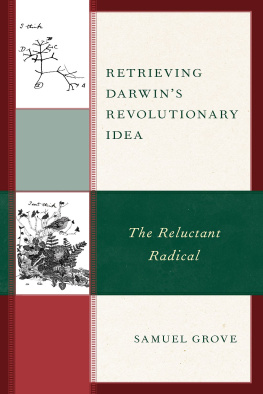

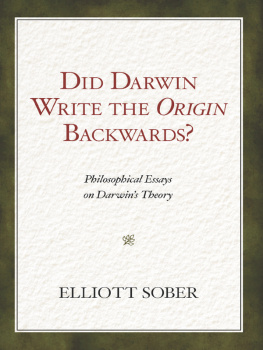
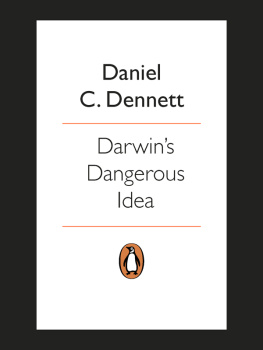
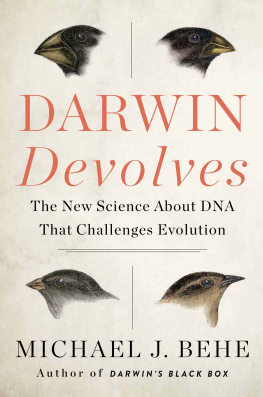
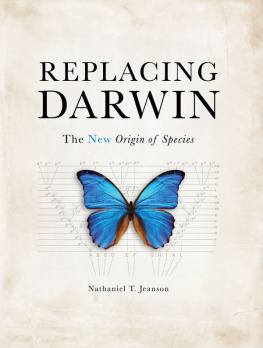
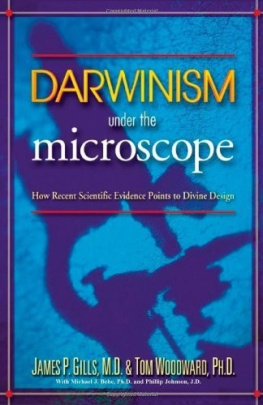
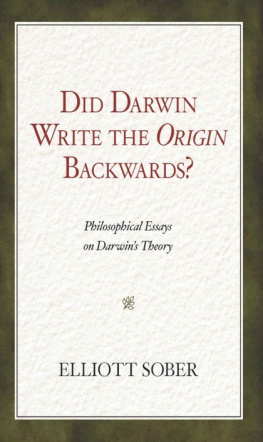

 The paper used in this publication meets the minimum requirements of American National Standard for Information SciencesPermanence of Paper for Printed Library Materials, ANSI/NISO Z39.48-1992.
The paper used in this publication meets the minimum requirements of American National Standard for Information SciencesPermanence of Paper for Printed Library Materials, ANSI/NISO Z39.48-1992.